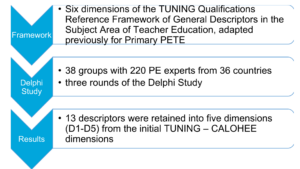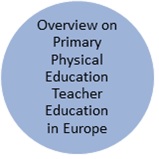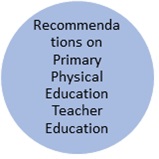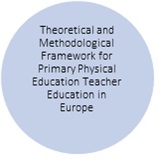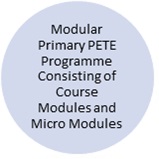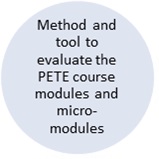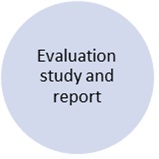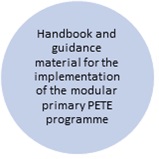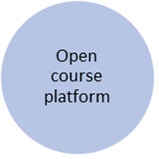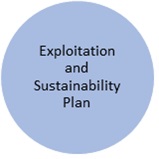Overview on Primary Physical Education Teacher Education in Europe
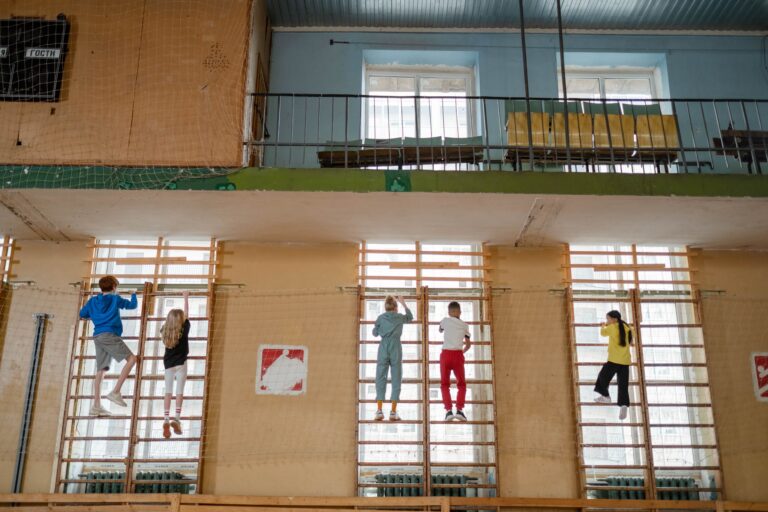
Mapping of the current situation in Primary PETE in Europe
- Existing profiles for primary teachers teaching PE in Europe
- Existing concepts, models and curricula for Primary PETE in Europe
- Existing links to European frameworks, as e.g. the European Qualification Framework (EQF)
Mapping of the current situation in Primary PETE in Europe consists of three parts:
Landscape Analysis
The project partners analysed information on PETE in 25 countries through available literature as well as their own knowledge and institutional documents describing the current situations in the different countries.
Literature Review
Reading of the published literature and available documents in order to extract relevant information for the PRIME PETE framework.
Delphi Study
38 groups with 220 PE experts from 36 countries performed a Delphi Consensus Study on the six dimensions of the TUNING Qualifications Reference Framework of General Descriptors in the Subject Area of Teacher Education, adapted previously for Primary PETE.
Teachers’ Qualification Level
Similarities as well as differences in providing primary PETE in Europe
- The Bologna process enabled larger coherence of the study programmes at the Higher Education Institutions
- However, number of ECTS, content or provision of school placement vary considerably among the European countries
Initial Teacher Education
Admission, Study programme content, Number of ECTS, School placement
Induction Phase
Induction phase starts with zero years in some countries and the longest period of induction in the countries’ sample is 2 years
In-service Provision
In-service teacher education is in most of the participating countries optional (74%), providers differ between countries (most Higher Education Institutions)
- Identify and highlight findings from the published literature that can inform the development of the PRIME PETE framework
- Analysing available documents, and extracting relevant information for the framework
→ explicit recommendations (‘teacher trainers should …’)
→ implicit ideas (e.g., ‘teacher education seems to be effective when it …’)
→ empirical findings (e.g., ‘a combination of direct instruction and guided problem solving resulted in …’)
Findings of the literature review are presented below, they were grouped in six dimensions, based on the content of the CALOHEE teacher education framework
Knowledge, Management and Creation
→ school experiences
→ reflective approaches
→ lifelong learning
→ …
Design and Management of Process of Learning, Teaching and Assessment
→ digitalisation, inclusion and experiential education
→ routines
→ curricula enhancement
→ …
Learner Empowerment, Potential and Creativity supporting Learner Holistic Growth and Development
→ development of a teacher’s knowledge is an iterative process
→ support a healthy work-related behavioural
→ professional biography support
→ …
Values and Social Leadership: Ethics and Social Commitment
→ collaborative work between teachers
→ combining didactics with practical parts
→ incorporation of inclusive physical education
→ …
Communication with Different Actors and in Different Contexts
→ verbal and non-verbal communication routines
→ professional exchanges, and lesson observation
→ social media and communication technologies
→ …
Development as Professionals and Life-Long Learners
→ professional development as an essential component of professional life
→ informal physical education leadership with a shared approach
→ occasion of pre-services to exchange and reflect alongside with experienced teachers
→ …
